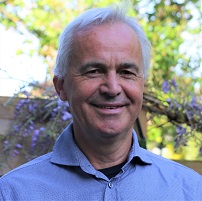
In this half day virtual session, Dr. Barry Devlin explores the challenges and potential benefits of moving from BI and Analytics to AI. We explore its use in data management; its relationship to data warehouses, marts, and lakes; its emerging role in BI; its strengths and weaknesses at all levels of decision-making support; and the opportunities and threats inherent in its two main modes of deployment: automation and augmentation.

In BI and analytics vendors are adding artificial intelligence possibilities with the promise of better or faster decisions. But how far could AI go? Barry Devlin explores in this session the challenges and potential benefits of moving from BI to AI. Also he will discuss the dangers of thoughtless automation and ethical considerations in adopting AI.

Autonomous systems are increasingly deployed for problem solving but are strongly dependent on the data in your organization. Therefore a data strategy is needed to enable your organization to make fact based decisions. Peter Vieveen will help defining a data strategy using the Data Management Body of Knowledge, and explain how to use gamification and data literacy to explain the data strategy to your organization.


Centralized and monolithic data architectures have a number of problems according to Rick van der Lans and he proposes the datamesh as a data architecture solution. Contrary to datawarehouses, datalakes and datahubs that are centralistic and monolithic, the datamesh is a distributed solution. Classical responsibilities within an IT organisation will shift dramatically.

When migrating on-premise data warehouses to the public cloud, new technological possibilities allow new approaches. Data-solution architect Rogier Werschkull will give insights into the (im)possibilities in this area, looking at how this can be practically tackled within solutions like Snowflake or Google BigQuery.

Streaming Analytics enable the execution of predictive models that operate on the never-ending data streams. Bas Geerdink discusses the three main steps of a streaming analytics solution and the core of the required architecture. With various use cases he will show the challenges and the technological options for implementation of the architecture.


Within a large pension insurance company, sustainability was one of the design principles when setting up a data environment. The data warehouse architecture was constantly adapted in an iterative manner. In this session, Mark van der Veen discusses how the data foundation was adapted and expanded for multiple purposes.
